More people in the U.S. than ever have put off medical care due to cost, according to Gallup’s latest poll of patients in America.
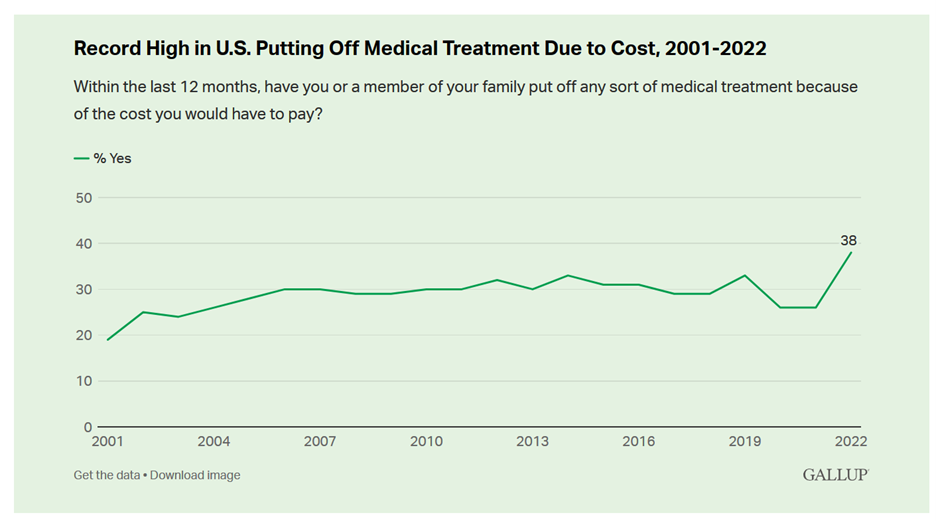
Gallup conducted the annual Health and Healthcare poll U.S. adults in November and December 2022. This was the highest level of self-rationing care due to cost the pollster has found since its inaugural study on the topic in 2001. This was also the most dramatic year-on-year increase of postponing treatment due to cost in the study’s history.
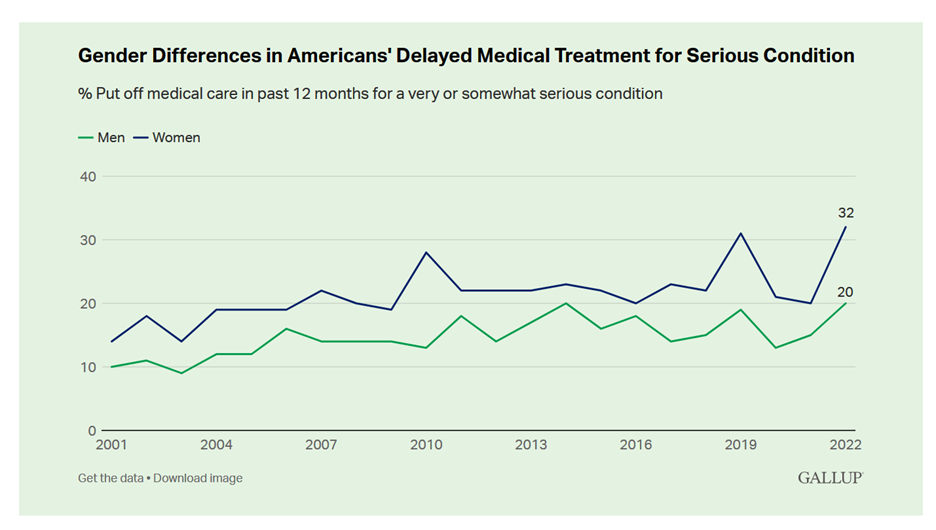
Note the substantial difference in women avoiding care for a serious medical condition due to cost compared with men: there is a 12-percentage point difference, with 32% of women avoiding care due to cost, compared with 20% of men. Furthermore, note that the slope of the curve for women was steeper than among men.
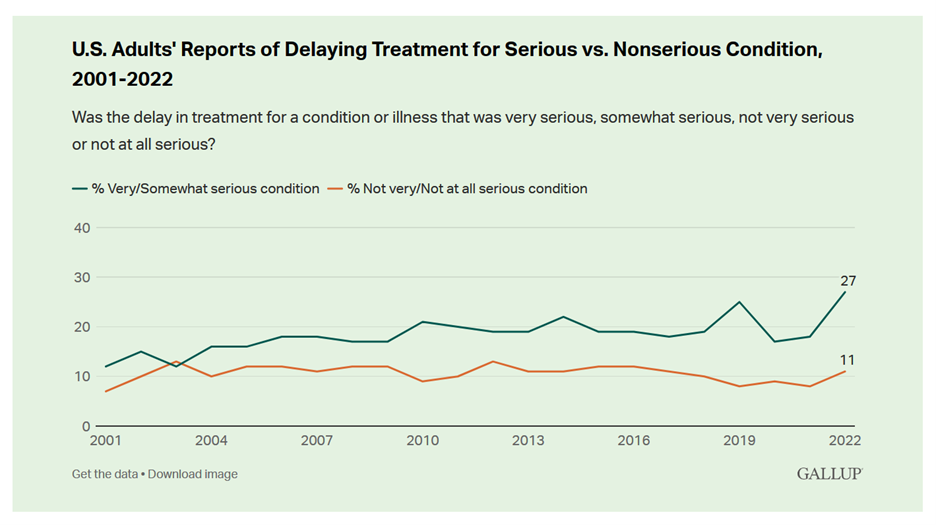
The point that more patients delayed treatment due to cost is especially concerning given that the delays were more common among patients dealing with a very or somewhat serious condition versus those health consumers facing less serious conditions — the green line here represents patients facing serious conditions, with 27% of them delaying care due to costs, versus 11% of people without serious conditions delaying care.
Health Populi’s Hot Points: Gallup concluded that, “With high inflation creating moderate to severe hardship for a majority of Americans in the second half of 2022, their reports of delaying medical care in general due to cost — as well as delaying care for a serious condition — rose sharply to new highs. Young adults, those in lower-income households and women were especially likely to say they or a family member had put off medical care.”
In the COVID-19 pandemic, it was women who were hit financially harder than men in the U.S. (a different fiscal impact than that felt by men in the 2008-9 Great Recession).
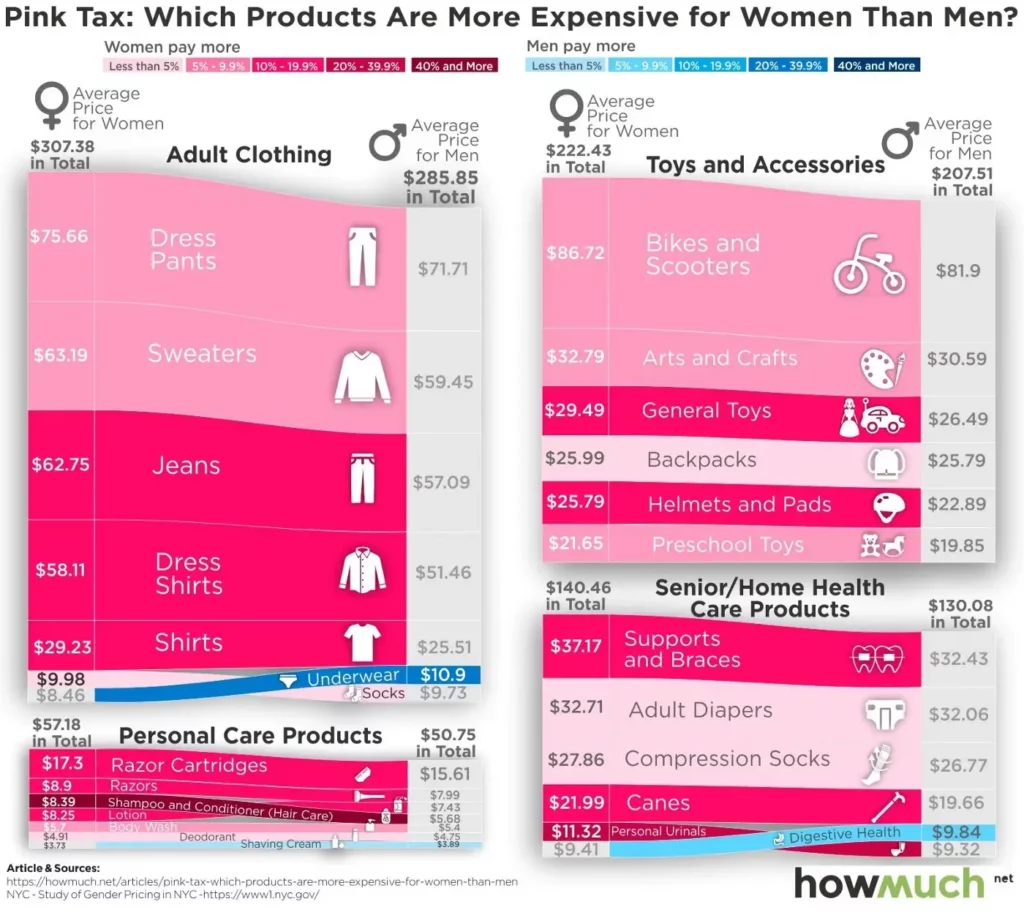
Is this a new riff on the so-called “Pink Tax?”
If so, it goes well beyond the difference in retail price for a pink razor versus a blue or black one.
This round of Gallup’s research suggests that there’s another lens on “financial toxicity” in health care beyond the usual context of high-priced specialty drugs (say, for dealing with oncology/cancer). I discussed that here in Health Populi last year with respect to medical debt and FICO scores. Beyond specialty drug price burdens, many U.S. patients now face general financial toxicity for health care costs, compelling patients to delay care for serious conditions (think: cancer, heart surgery, and other acute medical problems where timeliness can be the difference between surviving, and living well, versus increased mortality and reduced quality of life-years.
Expect women to try and find hacks and strategies to deal with this medical-fiscal stress. “Self-care” will take on many meanings and product/service iterations that may be outside of mainstream FDA-regulated and commercially reimbursed care. Financial service companies are addressing some of this financial challenge. The health care industry has the opportunity to collaborate across industries to, especially, craft services that women can access to support their care especially for high-cost, serious diagnoses.
Furthermore, public policies like those recommended in the Marshall Plan for Moms would help mitigate women’s risks for self-rationing medical care.




 I was invited to be a Judge for the upcoming
I was invited to be a Judge for the upcoming 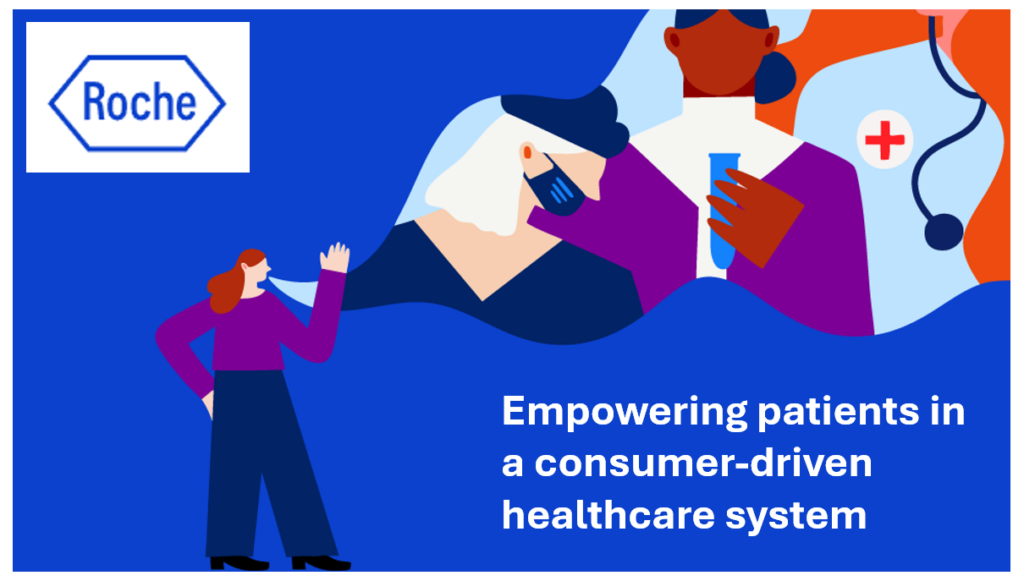 Thank you Team Roche for inviting me to brainstorm patients as health citizens, consumers, payers, and voters
Thank you Team Roche for inviting me to brainstorm patients as health citizens, consumers, payers, and voters  For the past 15 years,
For the past 15 years,